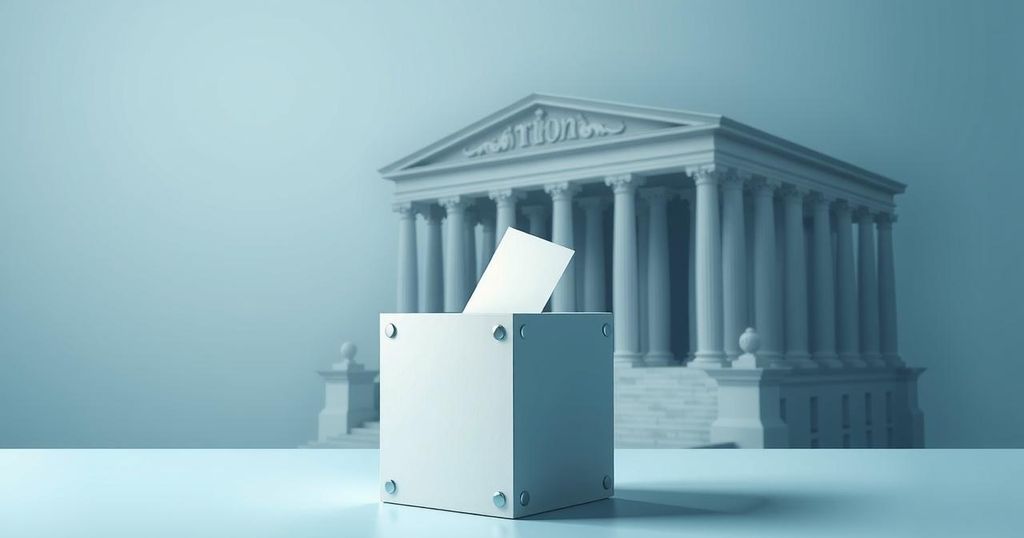World news
ALVARO NOBOA, ARGENTINA, ASIA, CITIZEN ’ S REVOLUTION, CONGRESS, DONALD TRUMP, ECUADOR, EL SALVADOR, ELECTIONS, HARVARD KENNEDY SCHOOL, JAVIER MILEI, LUISA GONZALEZ, NAYIB BUKELE, NORTH AMERICA, PHILIPPINES, POLITICS, PRESIDENTIAL ELECTION, PRESIDENTIAL ELECTIONS, REVOLUC, REVOLUCIÓN CIUDADANA, SOUTH AMERICA, TRADE RELATIONS, U. S
Fatima Khan
0 Comments
Ecuador Prepares for Polarized Presidential Runoff Between Noboa and González
Ecuador is set for a presidential runoff between incumbent Daniel Noboa and progressive candidate Luisa González. Both candidates received around 44% of the votes in the first round. Noboa, backed by neoliberal policies, faces González, who promotes social funding. The polarized political climate, characterized by lingering sentiments from past administrations, suggests significant challenges ahead for the next government.
In Ecuador’s political landscape, a runoff presidential election is set for April between incumbent Daniel Noboa and challenger Luisa González, who represent sharply contrasting ideologies. Both candidates garnered approximately 44 percent of the votes in the first round held on February 9, 2025. According to Ecuadorian electoral rules, a candidate must achieve over 50 percent of the votes or 40 percent with a 10-point margin to secure victory; neither candidate accomplished this, leading to the runoff.
Daniel Noboa, a wealthy businessman and Harvard Kennedy School graduate, champions neoliberal economic policies and has developed alliances with several prominent right-leaning figures globally, including former U.S. President Donald Trump. Luisa González, representing Revolución Ciudadana, the party of former President Rafael Correa, advocates for social spending policies aimed at addressing healthcare, education, and infrastructure.
The socio-political climate in Ecuador is polarized, as the remnants of Rafael Correa’s administration continue to evoke divided sentiments among the electorate. Supporters nostalgically recall Correa’s era marked by economic growth and reduced poverty, while detractors blame him for persistent challenges concerning drug violence and economic instability. Critics accuse Noboa’s governance style of being authoritarian, particularly following his imposition of martial law to quell violence.
Noboa’s past issues with Vice President Verónica Abad, whom he sought to sideline, have added another layer of intrigue. Moreover, recent elections showcased Iza, a candidate focused on Indigenous issues, who achieved a surprising third place, emphasizing ongoing tensions between social movements and political elite strategies in Ecuador.
The upcoming election not only includes the presidential runoff but also legislative races for the expanded assembly. The outcomes reflect the fragmented political climate and the difficulty any elected government will face in implementing effective solutions to Ecuador’s myriad socio-economic problems, particularly amid potential opposition from Congress.
As the election date approaches, the prospects for either candidate to govern effectively remain uncertain. Given the complex landscape of Ecuador’s political and economic challenges, any newly elected official will need to manage high public expectations and a potentially hostile legislative environment moving forward.
In conclusion, Ecuador’s upcoming runoff election between Daniel Noboa and Luisa González reflects deep-seated political divisions and varying economic ideologies. Noboa aligns with neoliberalism and strong international relationships, while González aims to revive Correa’s social policies. The complex electoral dynamics, compounded by social and economic strife, indicate that the succeeding government may face formidable challenges in meeting the electorate’s demands and resolving critical national issues.
Original Source: nacla.org




Post Comment